
The Torrey pine, Pinus torreyana, is a rare pine species in California, United States. It is a critically endangered species growing only in San Diego County in the Torrey Pines State Natural Reserve and the coastal town of Del Mar to the immediate north, and on Santa Rosa Island and San Miguel Island, offshore from Santa Barbara in Santa Barbara County. The Torrey pine is endemic to the California coastal sage and chaparral ecoregion.
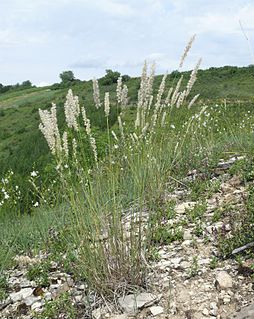
Melica is a genus of perennial grasses known generally as melic or melic grass. They are found in most temperate regions of the world.

Melica nutans, known as mountain melick, is a grass species in the family Poaceae, native to European, Eurasian, and Asian forests.
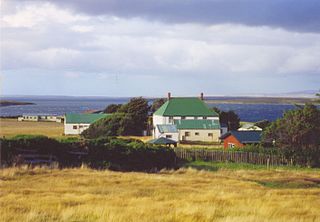
Tussock grasses or bunch grasses are a group of grass species in the family Poaceae. They usually grow as singular plants in clumps, tufts, hummocks, or bunches, rather than forming a sod or lawn, in meadows, grasslands, and prairies. As perennial plants, most species live more than one season. Tussock grasses are often found as forage in pastures and ornamental grasses in gardens.

Melica aristata is a species of grass known by the common names awned melic and bearded melicgrass.

Melica bulbosa is a species of grass known by the common name oniongrass. The common name comes from the onionlike appearance of the corm at its root; it is not related to the onions. It is native to western North America from British Columbia to the Rocky Mountains to California. It may or may not occur as far east as Texas.

Melica californica is a species of grass known by the common name California melic.

Melica fugax is a species of grass known by the common names little oniongrass and little melic. It is native to western North America where it usually grows in volcanic soils in forest and plateau habitat from British Columbia to the Sierra Nevada and North California Coast Ranges in California.

Melica geyeri is a species of grass known by the common name Geyer's oniongrass.

Melica harfordii is a species of grass known by the common name Harford's oniongrass.

Melica imperfecta is a species of grass known by the common name smallflower melic and little California melic.

Melica spectabilis is a species of grass known by the common names purple oniongrass and showy oniongrass.
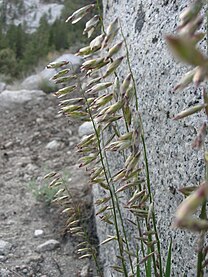
Melica stricta is a species of grass known by the common name rock melic.

Melica subulata is a species of grass known by the common name Alaska oniongrass.

Melica ciliata, the hairy melic or silky spike melic, is a species of flowering plant in the grass family Poaceae, native to Europe, north Africa and temperate Asia. It has been introduced to South Australia.
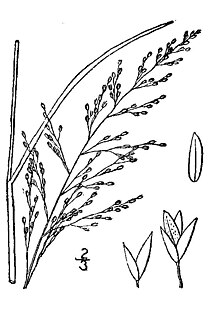
Muhlenbergia torreyana is a species of grass known by the common names New Jersey muhly, Torrey's muhly, and Torrey's dropseed. It is native to the eastern United States, where today it occurs in Maryland, New Jersey, North Carolina, and Tennessee. It has been extirpated from Delaware, Georgia, and New York.
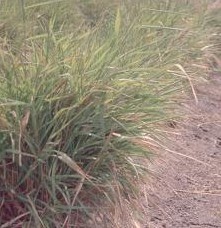
Melica nitens is a species of grass known by the common name threeflower melicgrass. It is native to the central United States.
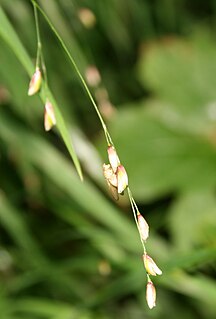
Melica uniflora, commonly known as wood melick, is a species of grass in the family Poaceae that is native to much of Europe, and to parts of South West Asia and North Africa.
Melica smithii is a species of grass that grows in the Canadian provinces Alberta, British Columbia, Quebec, Ontario, and the US states Idaho, Michigan, Montana, South Dakota, Washington, Wisconsin, and Wyoming. The species is named after Charles Eastwick Smith.
This page is based on this
Wikipedia article Text is available under the
CC BY-SA 4.0 license; additional terms may apply.
Images, videos and audio are available under their respective licenses.

















